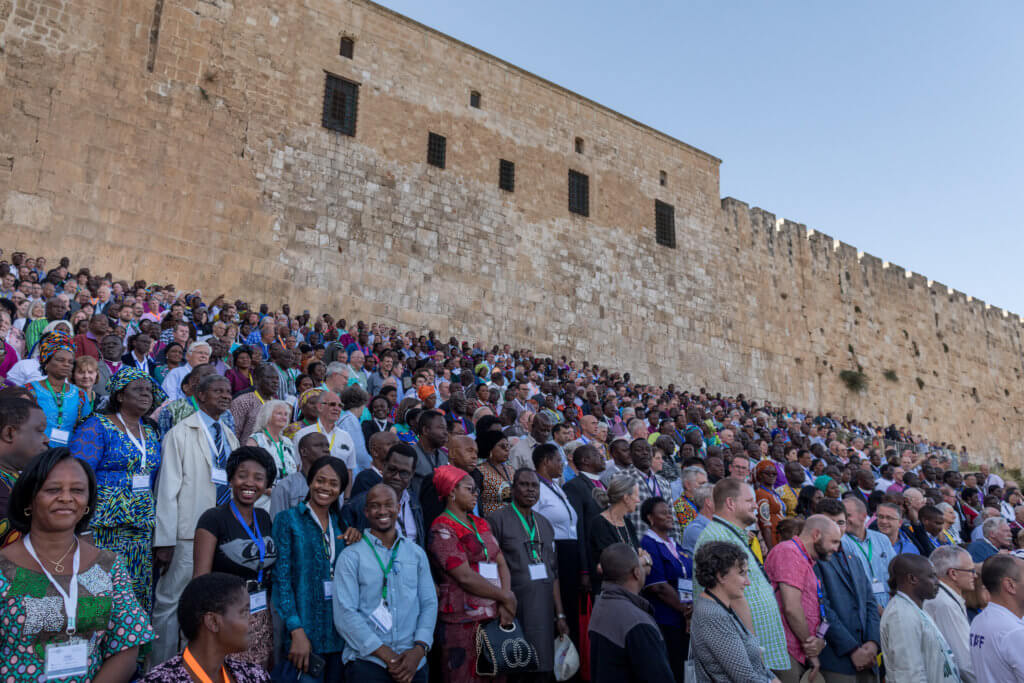In his report from the GAFCON Primates meeting, Archbishop Foley Beach declared that “GAFCON is not an ecclesial jurisdiction; it is a conference.” He commented in response to the deep disappointment that many have been feeling since a GAFCON Province has consecrated two women as bishops of the Church despite a moratorium on such consecrations. Although a spokesperson for GAFCON is reputed to have stated that this moratorium among GAFCON Provinces had expired, this is clearly not the case.
- The GAFCON Primates authorized a Task Force on Women in the Episcopate in 2015. That Task Force consisted of 19 Bishops and theologians from Kenya, Nigeria, Rwanda, Tanzania, Uganda, Sudan, North America, Chile, Myanmar, Sydney (Australia) and the UK.
- In 2017, the GAFCON Primates authorized a representative of the Task Force to consult with a “Panel of Advisors”—a bishop, clergy, and lay representative from each Gafcon Province or Branch. The Rev. Dr. Stephen Noll did so.
- In 2018, the GAFCON Primates received the Interim Report of the Task Force and approved its primary recommendation:
“that the provinces of GAFCON should retain the historic practice of the consecration only of men as bishops until and unless a strong consensus to change emerges after prayer, consultation and continued study of Scripture among the GAFCON Fellowship.” (emphasis added)
- The GAFCON Primates reaffirmed this recommendation in their 2019 Communique from Sydney.
So, where is the evidence of “a strong consensus to change” emerging from the GAFCON Fellowship? In fact, where is there any evidence of prayer, consultation, and continued study of Scripture among the GAFCON Fellowship? Were there any subsequent meetings of the Task Force in 2019? 2020? 2021? Or of the Panel of Advisors?
If GAFCON were acting in a truly conciliar way, we would expect to find such evidence of a strong consensus to change by a strong majority of the GAFCON fellowship after sustained prayer, consultation, and continued study of the Scriptures together. This is the nature of conciliar governance as Dr. Steve Noll observes in his essay on Women Bishops and Reception:
“True development of doctrine and practice requires time, careful testing, and consensus at the highest levels, as was the case at the apostolic council in Acts 15. This has not yet happened in the churches of the Anglican Communion and/or among the churches of the GAFCON fellowship. The Primates’ existing moratorium on ordaining a woman bishop recognizes the need for lengthy consideration and the danger of premature and unilateral action by one member church.”
Instead, the only evidence we have is the premature and unilateral consecration of two women bishops by one GAFCON member church, Kenya.
The GAFCON Primates were not able to speak with a united voice on this matter. So, they conceded the matter as adiaphora. They did not do the hard, sustained, time intensive and lengthy work that Anglican Conciliarism requires. Instead, they opted for “open reception” … This seems to fly in the face of GAFCON’s aspirations to be both confessional and conciliar.
Perhaps GAFCON’s aspiration to be conciliar is a bridge too far. The Jerusalem Statement (2008) launched the GAFCON movement as a “Fellowship of Confessing Anglicans.” The Jerusalem Declaration (2008) formed the GAFCON Primates Council “to authenticate and recognize confessing Anglican jurisdictions, clergy and congregations and to encourage all Anglicans to promote the gospel and defend the faith.”
Is it time for GAFCON to return to its roots, to this original charism which authenticated, recognized, and helped birth biblically faithful Anglican Churches in North America, Brazil, and New Zealand?
The majority of the GAFCON Primates and Provinces lie in the Global South. As I have written extensively elsewhere, the Cairo Covenant of the Global South Anglican Fellowship (October 2019) provides truly conciliar structures for a Global Anglican Communion based upon a biblical and apostolic confession of doctrine, discipline, and worship. What might happen if GAFCON, true to its calling, focused its efforts on “authenticating and recognizing confessing Anglican jurisdictions” by actively bringing them to the Global South for membership on the terms of the Cairo Covenant?
It would almost be like Paul bringing uncircumcised Gentile Christians to Jerusalem for membership in Christ’s one body, his Church.
Imagine that.


